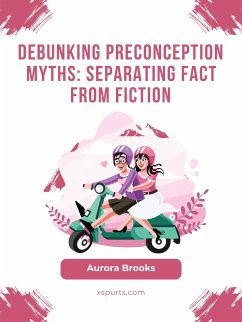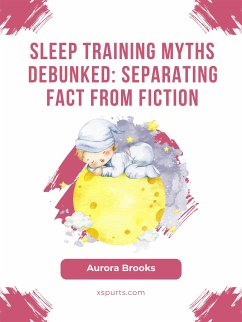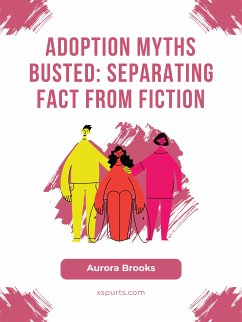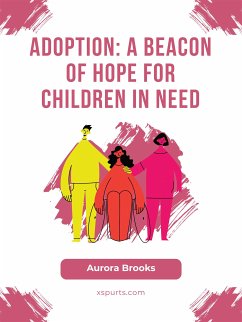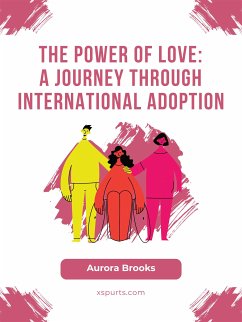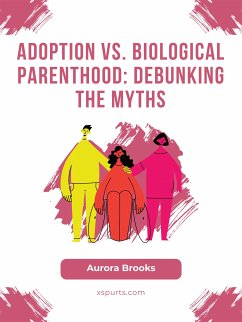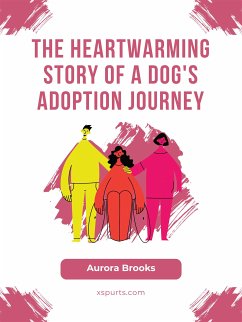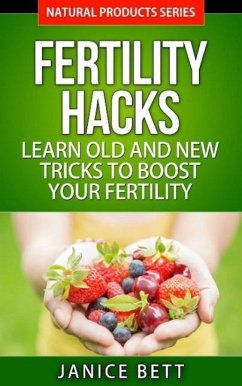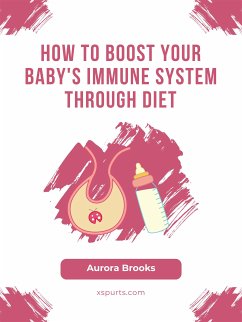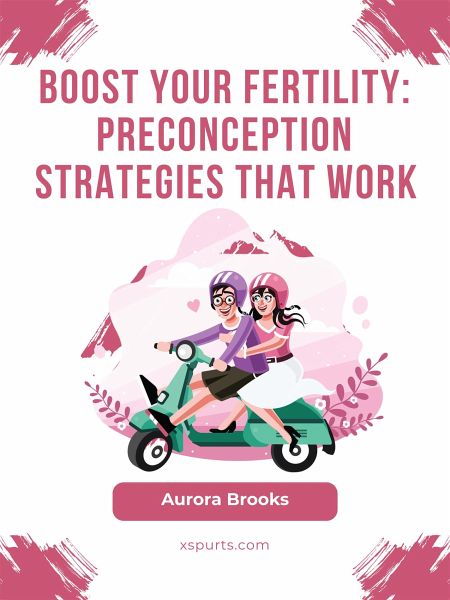
Boost Your Fertility- Preconception Strategies That Work (eBook, ePUB)

PAYBACK Punkte
0 °P sammeln!
Are you struggling with fertility issues and feeling overwhelmed by the myths and misconceptions surrounding conception? Look no further than ""Debunking Preconception Myths: Separating Fact from Fiction."" This short read book is your ultimate guide to separating fact from fiction when it comes to fertility.In this book, you will find a comprehensive table of contents that covers all the common myths surrounding fertility. From the belief that age doesn't affect fertility to the misconception that infertility is always a woman's issue, each myth is thoroughly debunked and dissected.Submyths a...
Are you struggling with fertility issues and feeling overwhelmed by the myths and misconceptions surrounding conception? Look no further than ""Debunking Preconception Myths: Separating Fact from Fiction."" This short read book is your ultimate guide to separating fact from fiction when it comes to fertility.
In this book, you will find a comprehensive table of contents that covers all the common myths surrounding fertility. From the belief that age doesn't affect fertility to the misconception that infertility is always a woman's issue, each myth is thoroughly debunked and dissected.
Submyths are also addressed within each main myth, providing a deeper understanding of the topic. For example, within the myth that infertility is always a woman's issue, the submyth that men don't experience age-related infertility is explored. By addressing these submyths, the book ensures that no stone is left unturned in dispelling preconceived notions.
The book also tackles the misconception that conception is guaranteed during ovulation. It delves into the submyth that timing is everything for conception and the submyth that infertility means the inability to conceive. By providing evidence-based information, readers will gain a clearer understanding of the complexities of conception.
Another myth that is debunked is the belief that stress is the main cause of infertility. The book explores the submyth that relaxation guarantees conception and the submyth that infertility always causes psychological distress. By addressing these submyths, readers will gain a more nuanced understanding of the relationship between stress and fertility.
Furthermore, the book addresses the misconception that fertility treatments always lead to multiple births. It delves into the submyth that in vitro fertilization (IVF) always results in multiple pregnancies and the submyth that natural conception is safer than fertility treatments. By providing evidence-based information, readers will gain a clearer understanding of the risks and benefits associated with fertility treatments.
The book also tackles the myth that lifestyle choices don't affect fertility. It explores the submyth that smoking doesn't affect fertility and the submyth that diet and exercise have no impact on fertility. By providing evidence-based information, readers will gain a clearer understanding of the importance of making healthy lifestyle choices when trying to conceive.
Additionally, the book addresses the misconception that fertility declines after the age of 35. It delves into the submyth that women cannot conceive naturally after 35 and the submyth that assisted reproductive technologies are the only option after 35. By providing evidence-based
This title is a short read. A Short Read is a type of book that is designed to be read in one quick sitting.
These no fluff books are perfect for people who want an overview about a subject in a short period of time.
Dieser Download kann aus rechtlichen Gründen nur mit Rechnungsadresse in A, B, BG, CY, CZ, D, DK, EW, E, FIN, F, GR, HR, H, IRL, I, LT, L, LR, M, NL, PL, P, R, S, SLO, SK ausgeliefert werden.




